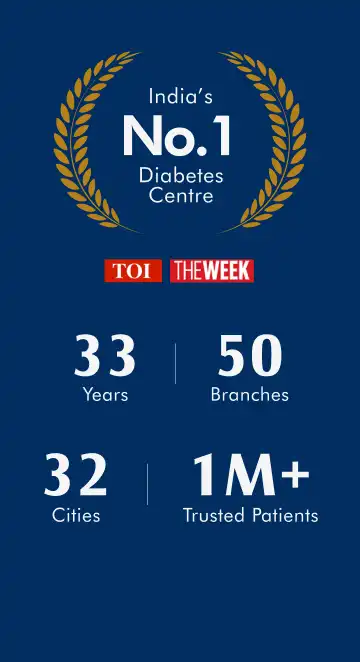33+ Years
10L+ Patients
32 Cities
50 Centres
Complete Diabetes Treatment under One Roof
We offer personalized, evidence-based care for individuals with diabetes, prioritizing their well-being.

Comprehensive support for adopting a healthy lifestyle to effectively manage diabetes and improve overall well-…

Diabetes can affect the eye in various ways. Diabetic Retinopathy is a common vision-threatening …

The foot is one of the major organs that can get affected by diabetes. The Foot Clinic at Dr. Mohan’s Diabetes …

In the headquarters of Dr. Mohan’s Diabetes Specialities Centre Hospital in Gopalapuram, Chennai, there is a 70…

At Dr Mohan’s, we keep pushing ourselves to extend the best care possible in the field of diabetes. By…

Dental gum problem (periodontal disease) is considered to be one of the major complications of uncontrolled…

The main aim of the pharmacy in the Dr. Mohan’s Diabetes Specialties Centre is delivery of authentic drugs to the …

Comprehensive support for adopting a healthy lifestyle to effectively manage diabetes and improve overall well-…

Eye Care at Dr. Mohan’s
Know MoreOur team of experienced ophthalmologists and optometrists are dedicated to providing top-notch care to ensure the health and well-being of your eyes. From routine power check-up, preliminary retinal examination to advanced surgical procedures, we are committed to offering the best possible treatments to our patients. At Dr. Mohan’s Diabetes Specialties Centre, your vision is our priority, and we strive to help you see the world more clearly. Trust us to take care of all your eye care needs with expertise and compassion.
Dr. V. Mohan
Chairman & Chief of Diabetology

My dream is to have a diabetes complication free world. At Dr. Mohan’s we strive to make people with diabetes live long & healthy life despite the disorder.
32+
Cities Across India
10L+
Patients
8
States of India
130+
Doctors Team
35+
Services Offered
What Our Patients And Peers Think about Us
Trusted diabetes care at
Dr. Mohan’s Diabetes Specialities Centre
Book appointment with us today!











